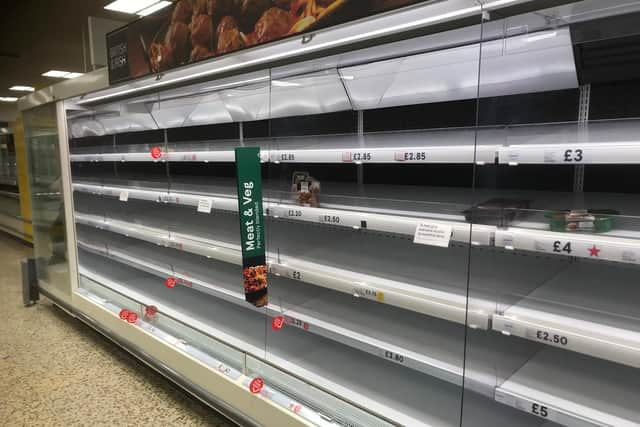Why using more locally grown food will prevent empty shelves
The team at the Institute for Sustainable Food at the university said that local producers have become a crucial source of supplies for the UK’s food system during the coronavirus pandemic and could improve its resilience for the long term.
Dr Anna Krzywoszynska is launching a major study into the impact of the pandemic on local food producers. Her team will investigate how local supply chains have contributed to food security during the crisis, and how they can prevent shortages over the long term.
Advertisement
Hide AdAdvertisement
Hide AdIt will track emergency responses in the immediate crisis period, and develop strategies to inform longer-term plans, providing essential data to support a much-needed diversification of the UK’s food system during and after the crisis.


Physical distancing measures have caused major disruption for the UK’s food sector – from shortages of fruit pickers, to restaurant closures and spikes in demand for certain products.
Direct sales of vegetable boxes from local growers or community supported agriculture schemes have more than doubled during the pandemic. With just 16 per cent of fruit and 53 per cent of vegetables sold grown domestically, the UK is particularly vulnerable to disruptions to international supply chains.
Dr Krzywoszynska said: “We have a chance to use this moment to change food systems for the better. We know that re-localising food is key for food security and for human and environmental health.”